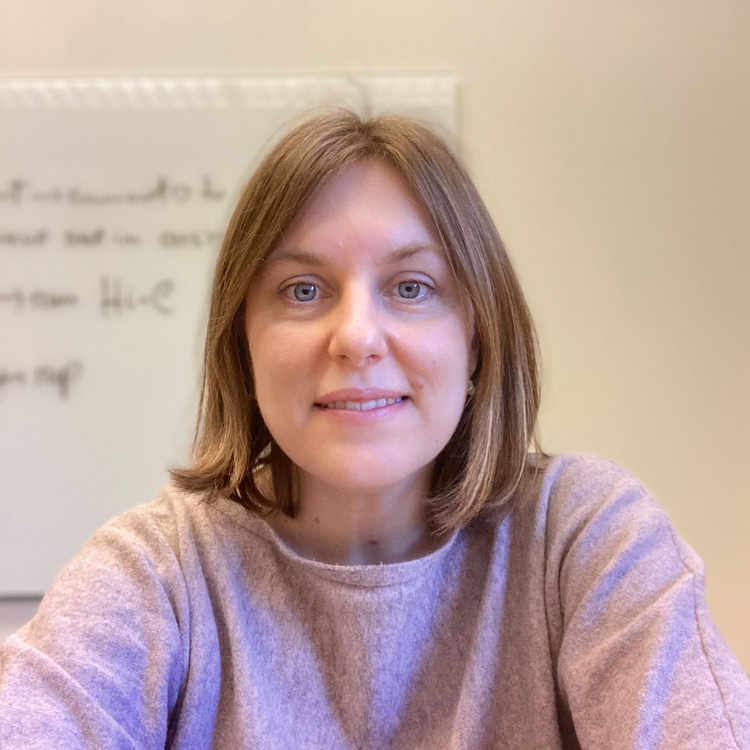By Kathy Sedgwick, NOVA Research Company

Dr. Alessandra Chesi joined the University of Pennsylvania faculty as an Assistant Professor of Pathology and Laboratory Medicine in July 2020. Her work at Penn focuses on the application of transformative technologies as well as functional genomics and systems biology approaches toward gaining insight into the regulation and identity of genes that influence risk for Alzheimer’s disease and other neurodegenerative disorders. Her ultimate goal: to identify druggable target genes for these diseases.
Dr. Chesi and her lab team aim to find actionable target genes by translating findings from genome-wide association studies (GWAS) and sequencing studies of human neurodegenerative disorders into molecular mechanisms of disease. Her team combines wet-bench/bioinformatics approaches that leverage cutting-edge genomics and epigenetic techniques (e.g., Capture C, ATAC-seq, ChIP-seq, and RNA-seq) to improve understanding of gene regulation; map variants to genes; and follow up on candidate variant-gene pairs via CRISPR/Cas9 editing and functional studies in cellular models of neurodegeneration.
Favoring an interdisciplinary approach that applies different perspectives to solving biological problems, Dr. Chesi actively seeks connections and collaborations with experts in computer science, engineering, and machine learning as well as neuroscientists, pathologists, and clinicians. As part of the highly interdisciplinary, collaborative Penn Neurodegeneration Genomics Center, Dr. Chesi can take advantage of co-facilities and interact with faculty members who specialize in neurodegenerative disorders and dementia, human genetics, genomics, bioinformatics, and biostatistics—experts she describes as “practically next door.”
Dr. Chesi’s training and early research prepared her to advance toward her research goals. After obtaining her PhD at the International School for Advanced Studies, Trieste, Italy, Dr. Chesi was a postdoctoral fellow in the laboratory of Aaron Gitler in Cell and Developmental Biology at Penn (2008–2011) and then at Stanford University (2012–2013). During these years, she set up bioinformatics pipelines to analyze next-generation sequencing data and leveraged the power of yeast as a model system to study genes associated with protein-misfolding diseases such as Parkinson’s disease and amyotrophic lateral sclerosis (ALS). She also led a large exome-sequencing project of sporadic ALS trios to identify de novo, potentially pathogenic mutations enriched in chromatin regulator genes.
As a Bioinformatics Specialist in Struan Grant’s lab at the Children’s Hospital of Philadelphia (CHOP) and the Center for Spatial and Functional Genomics (2013–2020), Dr. Chesi developed novel chromatin conformation capture techniques coupled with ATAC-seq to link known GWAS loci to their functional target genes.
Dr. Chesi’s work—past, present, and future—appeals to her curiosity. What is happening in the brain when someone develops Alzheimer’s? What techniques can be applied to answer key questions? “I consider myself lucky,” Dr. Chesi says. “I’m doing work that I like and driving toward finding a cure for these terrible diseases.”
Learn more about Dr. Chesi’s work on her Penn faculty page.